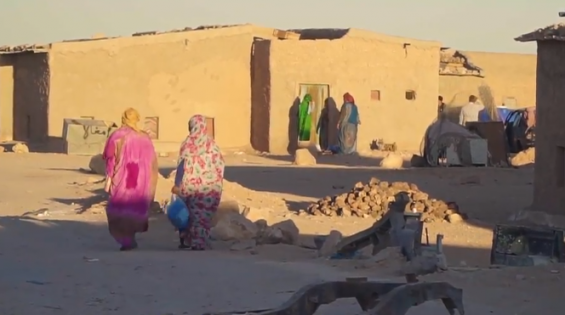In Tindouf, a «deserted zone» located in south-western Algeria, Sahrawis’ ordeal seems to be eternal. In an article made public by the United Nations High Commissioner for Refugees (UNHCR), Mbareka had the chance to open her heart and speak about her days in the camp. «Now in her mid-fifties, she lives in Smara refugee camp», wrote the agency Thursday, 14th of June.
Now, Mbareka is a grandmother who fears «staying» in Tindouf and being «forgotten», without being able to see her family again in the Sahara. She describes the camp as a «protracted exile in an inhospitable environment». «She could never have imagined that she would become a grandmother while in exile», reports UNHCR Algeria.
Living in a «mud-brick house» and a traditional tent that was provided eight years ago by the UNHCR, Mbareka says that it is inside this same «worn» tent that the family spends most of its time.
Everyday life challenges
«We do everything in here (…) Sleep, eat, drink tea, and receive guests. They are part of our culture. If you offered an old person here a villa or a tent, we will choose the tent», said the grandmother.
«Every day is a challenge, and we will have this challenge until we go back».
According to UNHCR, housing is not the only challenge facing families in Tindouf. The agency referred to problems related to water and food that «cannot be stretched to last the whole month».
«I hope to go home before I die, and I fear for my daughter, my son-in-law, and for Abdullahi – that they will stay here and grow old. My fear is the same as everyone’s here, that we will stay here and be forgotten», she told the same source.
The UN agency recalls that the conflict in Western Sahara has lasted for more than 40 years. Most Saharawis living in the camps «were born in the camps, never having known their homeland».





 chargement...
chargement...













